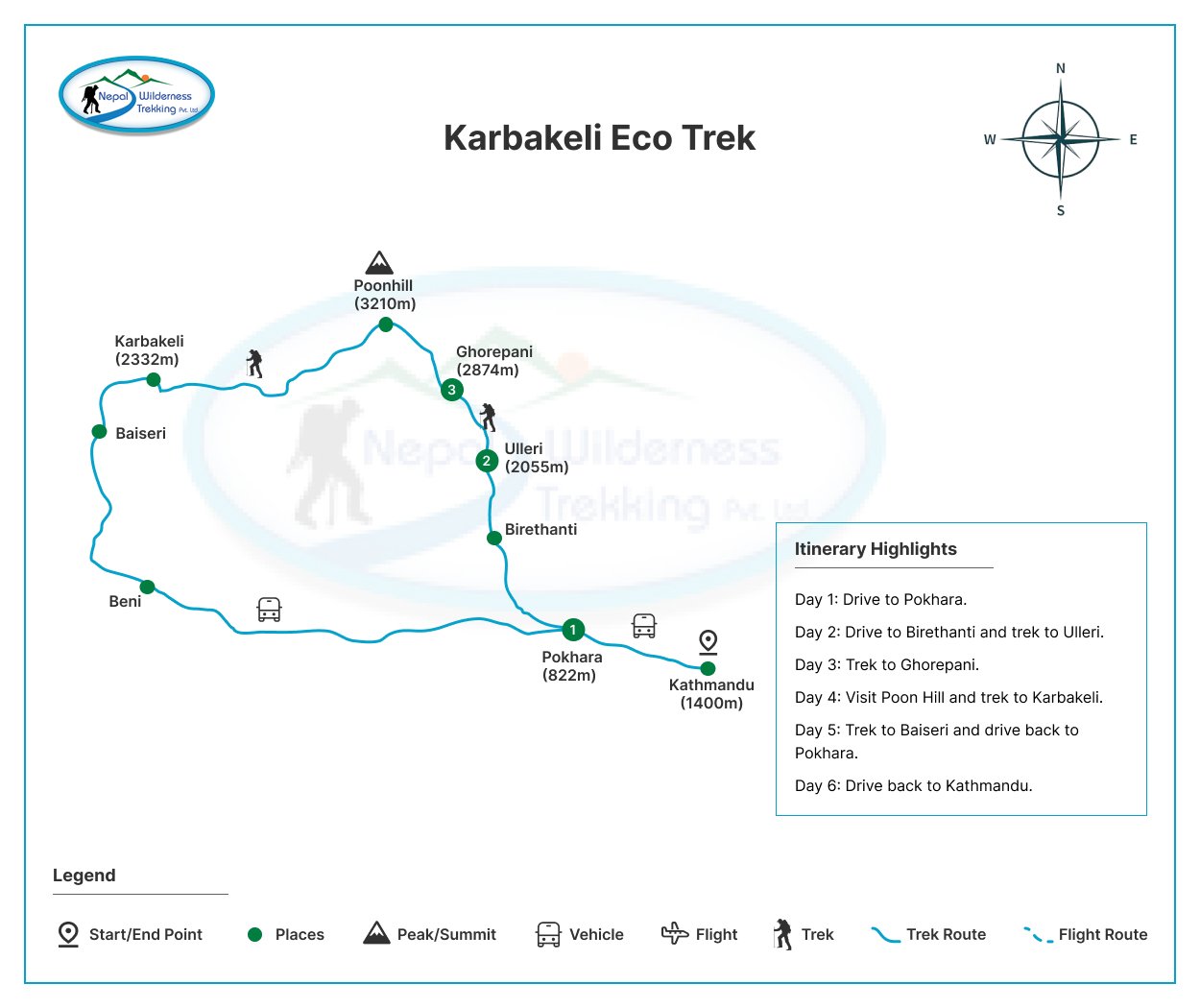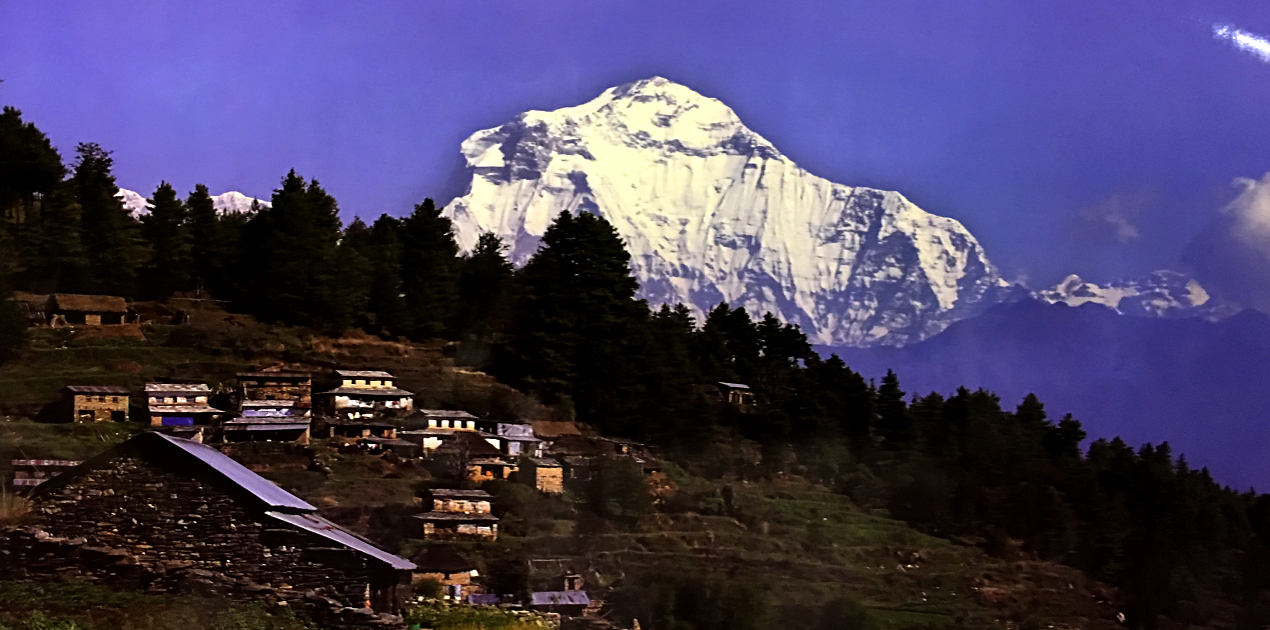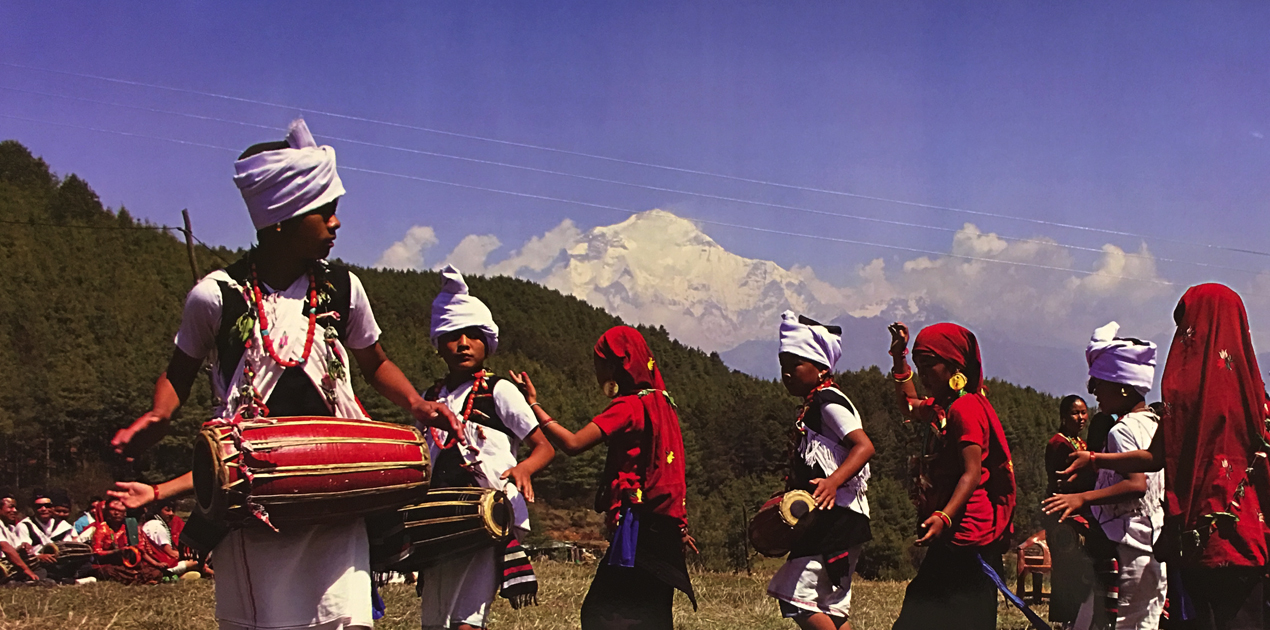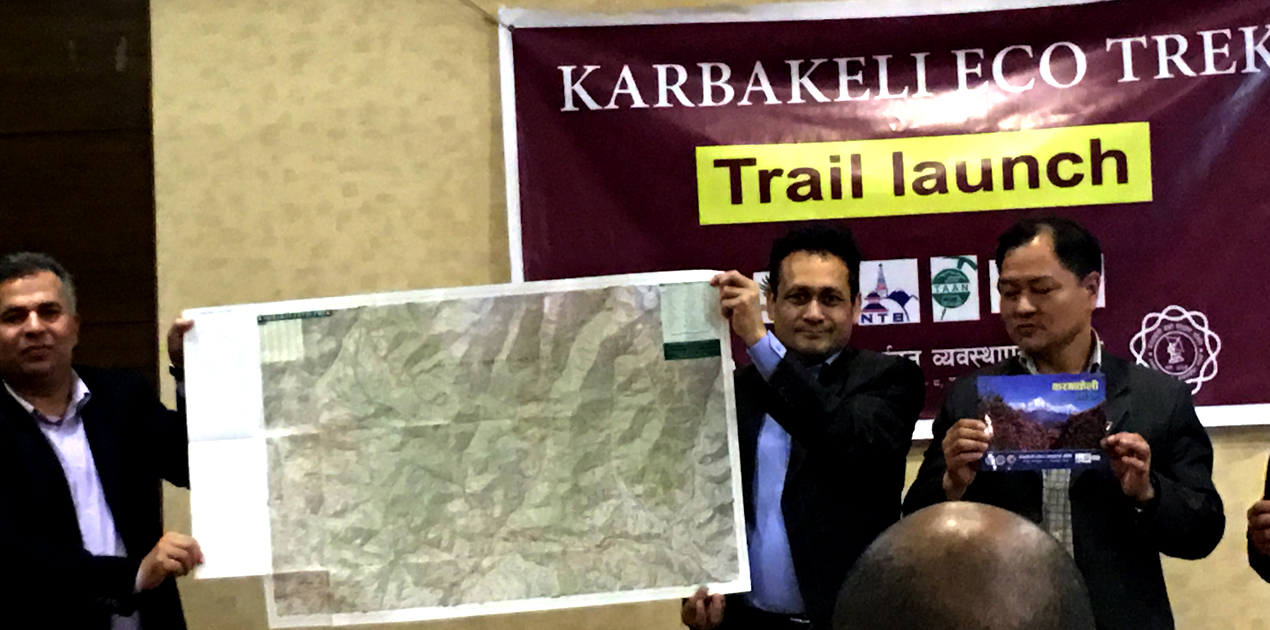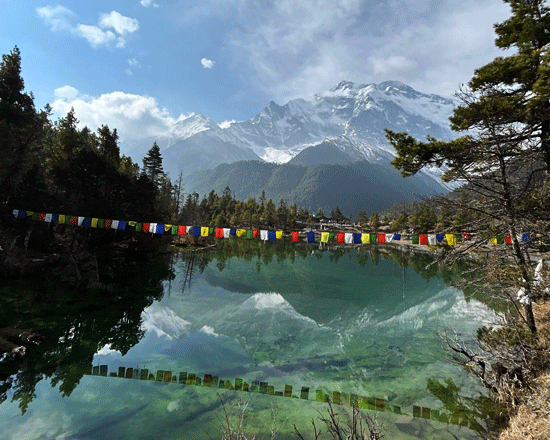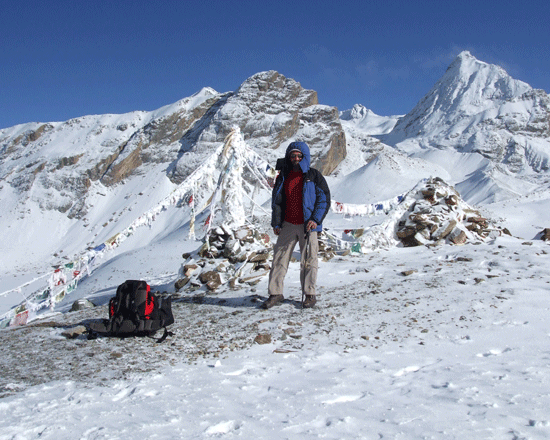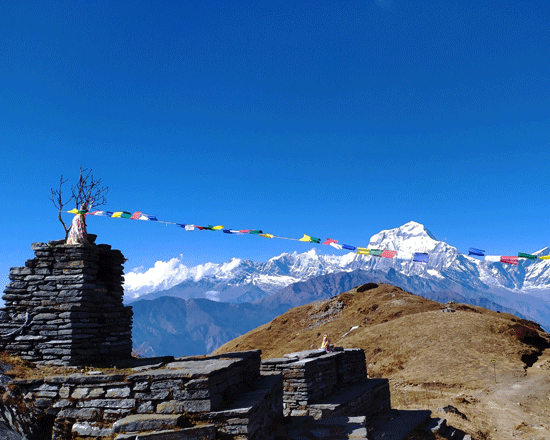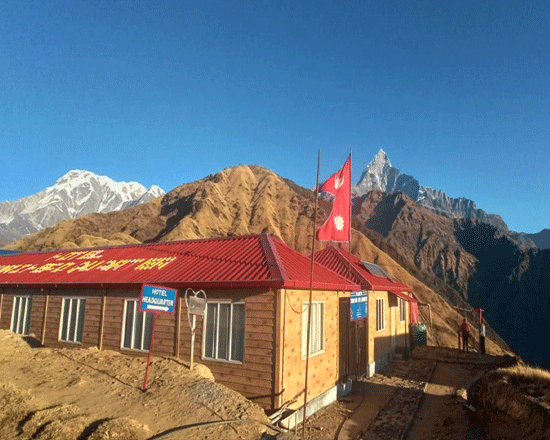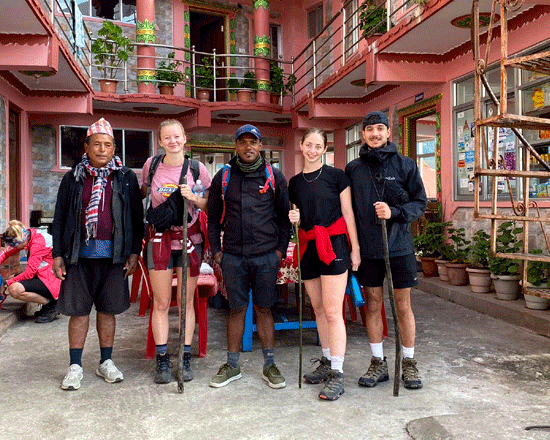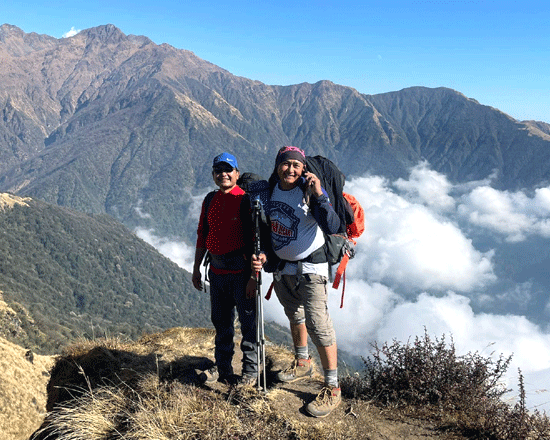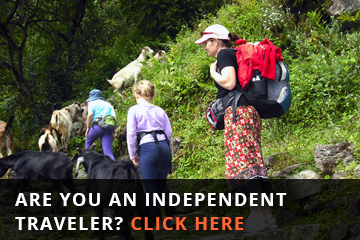Karbakeli Eco Trek
Karbakeli Eco Trek
Annapurna RegionTrip Facts
Since the terrain can be hard and the days long, hikers on these treks should be in good physical condition and have some previous mountain walking experience. Steep climbing may be involved, although it is never necessary to use ropes. Treks at this level can he arranged for periods of 16 to 21 days. Typically, a gradual ascent through a green river valley will lead you up to a number of high passes, where you will reach the altitude of 5416m. Often times, you will get a close insight into the Tibetan culture. Participants should expect to trek above 5416m/17872ft.
Hold Your Guide : Riddi Ghale100%
Overview
Exploring the Karbakeli Eco-Trek: An Enchanting Journey in Nepal
The Karbakeli Eco-Trek, launched on May 18, 2018, has emerged as a hidden gem in the Nepalese tourism landscape. This trek, characterized by its pristine natural beauty and rich cultural tapestry, offers an alternative and eco-friendly trail to explore the breathtaking vistas of Nepal. Crafted and promoted in collaboration with the Trekking Agency Associations of Nepal (TAAN), Nepal Tourism Board (NTB), and Nepal Mountaineering Associations (NMA), along with the enthusiastic involvement of the Karbakeli Village Tourism Deployment Committee (KVTDC), this trek has quickly gained recognition for its unique offerings.
A Scenic Journey through Karbakeli Eco-Trek
The Karbakeli Eco-Trek is a mesmerizing journey that promises to immerse you in the stunning landscapes and vibrant cultures of Nepal. This trail offers a newly opened version of the classic Poon Hill trek, with the added charm of MOHARE Danda. Situated in the Annapurna region, this trek is a treat for nature enthusiasts and cultural explorers alike.
As you embark on this adventure, you’ll be greeted by a panoramic view of the Annapurna mountain range, which includes the majestic Dhaulagiri standing tall at 8,167 meters, the impressive Tukuche peak at 6,920 meters, and the iconic Nilgiri at 7,061 meters. The Annapurna South peak, at an elevation of 7,219 meters, adds to the grandeur of the landscape. However, the natural beauty isn’t the only highlight; the Beni Bazaar Valley, with its stunning gorge, is another captivating feature of this region.
A Melting Pot of Ethnic Diversity
The Karbakeli area is a melting pot of ethnic diversity, with various communities coexisting harmoniously. Among the prominent ethnic groups are the Poon Magars, Tamangs, Thakalis, Damais, and more. However, it is the Poon Magars who predominantly inhabit the Karbakeli area, and their rich culture and customs add depth and authenticity to the trekking experience.
Karbakeli Baba: The Chief God of the Magar Community
Central to the culture of the Magar community is the veneration of Karbakeli Baba as their Chief God on Earth. Perched atop Karbakeli Hill, the temple dedicated to Karbakeli Baba stands as a testament to this deep-rooted faith. This temple, located in Annapurna Municipality Ward No. 8 at Kaphal Danda, also known as “Ramchan Kulchan Danda,” sits at an altitude of 2,332 meters. Adorned with prayer flags and featuring a splendid golden statue of Karbakeli Baba, the temple is a place of spiritual significance and breathtaking beauty.
The Karbakeli Eco-Trek Itinerary
The Karbakeli Eco-Trek unfolds over eight memorable days, from arrival to departure. The itinerary mirrors that of the famous Ghorepani Poon Hill trek in terms of time frame. While the trails are slightly more challenging compared to the Poon Hill trek, the rewards are immeasurable. The trek takes you through a culturally rich region, offering glimpses into the traditions and lifestyle of the Magar community.
Exploring the Karbakeli Eco-Trek
The Karbakeli Eco-Trek promises an array of experiences that are bound to leave a lasting impression:
- Breathtaking Views: The trek offers breathtaking views of the Annapurna mountain range and the captivating Beni Bazaar Valley. The beauty of this region is beyond words.
- Cultural Immersion: Immerse yourself in the rich culture and warm hospitality of the Magar people. Engage with the locals, learn about their traditions, and create lasting memories.
- Spiritual Discovery: Visit the Karbakeli Baba temple and explore the spiritual side of the trek. The serene surroundings and the temple’s architecture are a sight to behold.
- Eco-Friendly Adventure: As the name suggests, the Karbakeli Eco-Trek is designed with environmental sustainability in mind. It offers an opportunity to experience the beauty of nature while treading lightly on the environment.
- Local Expertise: The trek is guided by knowledgeable locals who understand the terrain, culture, and history of the region. Their insights add depth to your journey.
Planning Your Karbakeli Eco-Trek
The Karbakeli Eco-Trek is a unique opportunity to explore Nepal’s natural beauty and cultural richness. It’s a journey that promises not only breathtaking vistas but also a profound connection with the traditions and heritage of the Magar community.
At Nepal Wilderness Trekking, we are here to guide you through this extraordinary adventure. Our team of experienced guides, porters, and support staff are intimately familiar with the Karbakeli region. We offer reasonably priced full-board packages to ensure you have a safe and enjoyable trek.
Don’t miss the chance to embark on the Karbakeli Eco-Trek and discover the hidden treasures of the Himalayas. This trek is a testament to the beauty of Nepal and the warmth of its people, and it’s waiting for you to explore it.
Detail Itinerary
- Day 01: Drive to Pokhara by tourist bus 6 hours and overnight at Lake Side Pokhara,
- Day 02: Drive to Birethanti 2 hours by car and trek to Ulleri 1960m. 4 hours, Overnight at Lodge
- Day 03: Trek To Ghorepani 2860m 5 hours overnight at Lodge,
- Day 04: visit Poon Hill 3210m. and trek to Karbakeli2332m via Phulbari, 5 hours overnight at KARBAKELI eco-community Lodge
- Day 05: Trek to Baiseri 4 hours and bus to Pokhara via Beni, overnight at Lake site
- Day 06: drive back to Kathmandu
Cost Included
- All the airport and hotel transfers are as per the itinerary.
- Two nights hotel accommodation in Pokhara city inclusive of breakfast.
- Italian, Chinese, Nepali, Indian, and many other European Delicious Meals three times a day (Breakfast, lunch, and dinner chosen by Menu).
- All the ground transport as required.ktm- Pokhara- Birethanti, Beni- Pokhara-Kathmandu
- Annapurna region trekking permits and TIMS card fees.
- Lodges accommodation on the trek.
- Experienced English-speaking trekking guide licensed by the government, familiar with the area.
- One porter for every two to three participants. (Note: An additional cost applies for solo clients requiring a porter.)
- Annapurna region trekking route map, sleeping bags, and hiking stick.
- First aid medical box.
Cost Excluded
- Hotel in Kathmandu
- Meals in the Kathmandu.
- Personal equipment
- all beverages, Soft and hard table drinks such as coke, beer,
- drinking water/mineral water, etc. during the trek.
- dessert, etc
- Hot shower, laundry
- personal insurance
- Tip for guide and porter.
Trip Map
